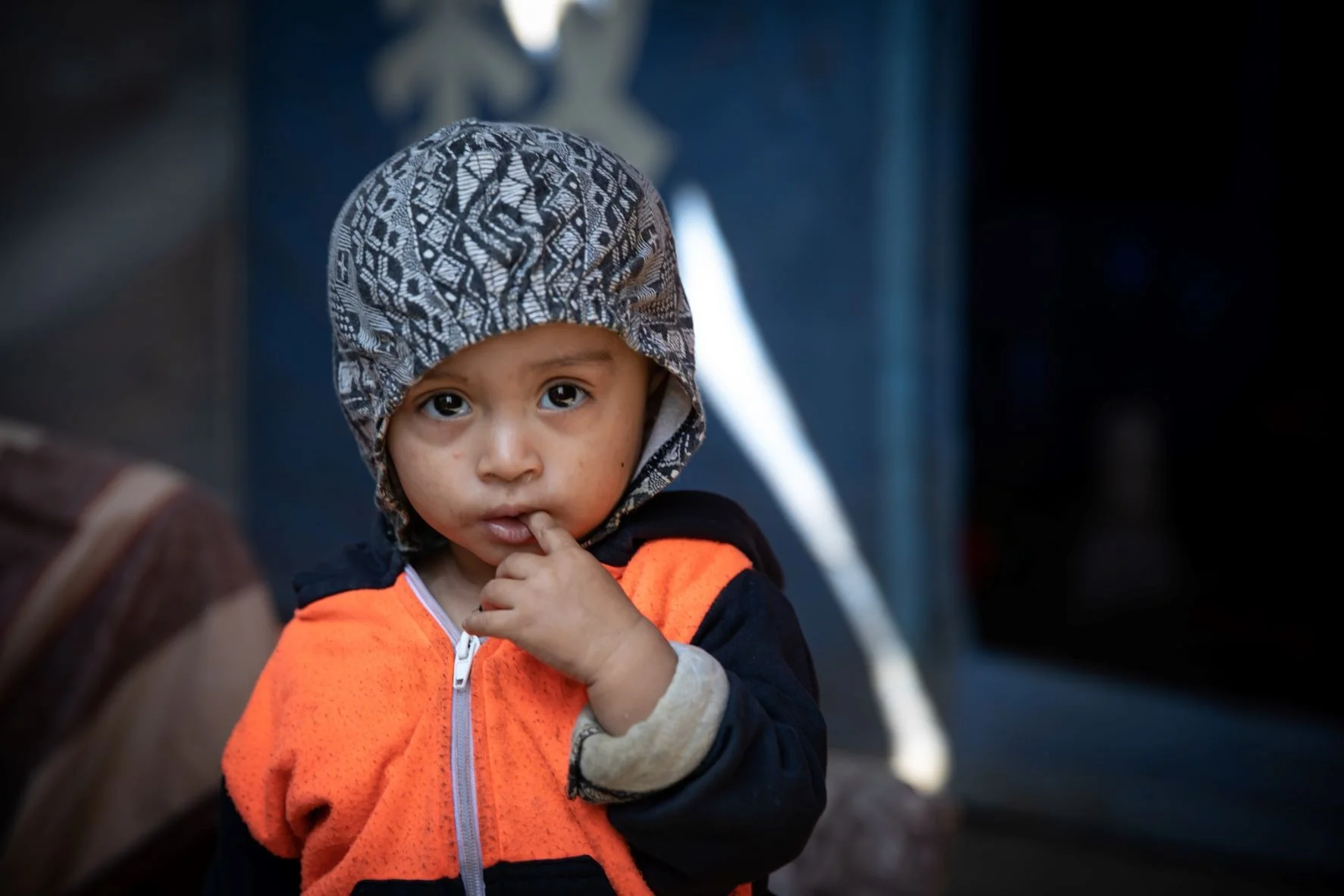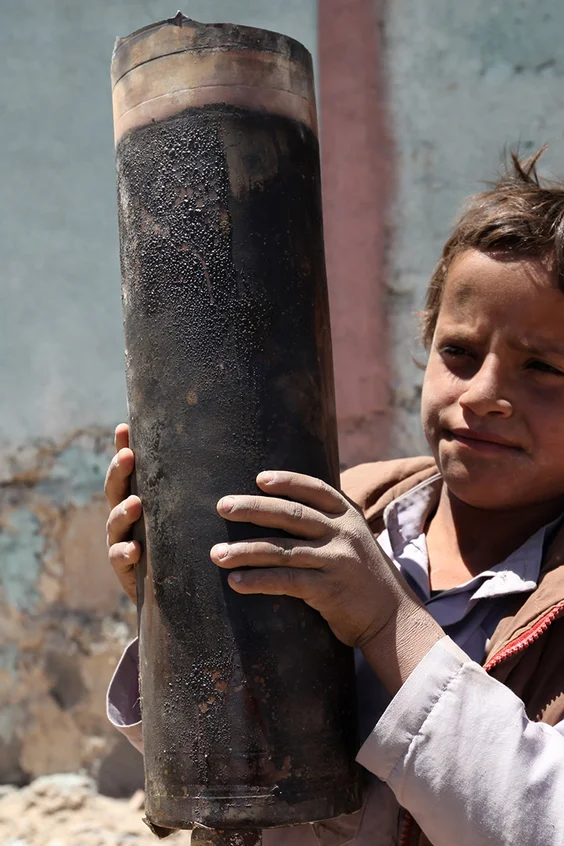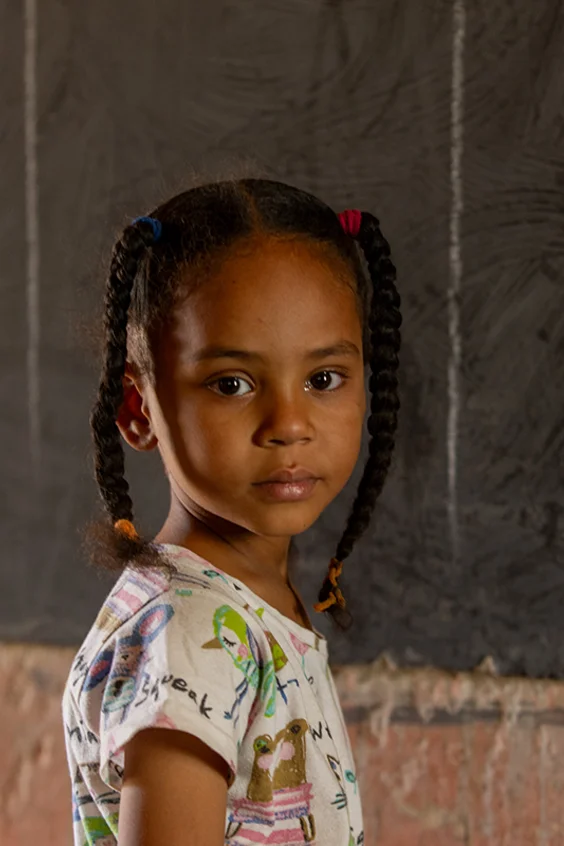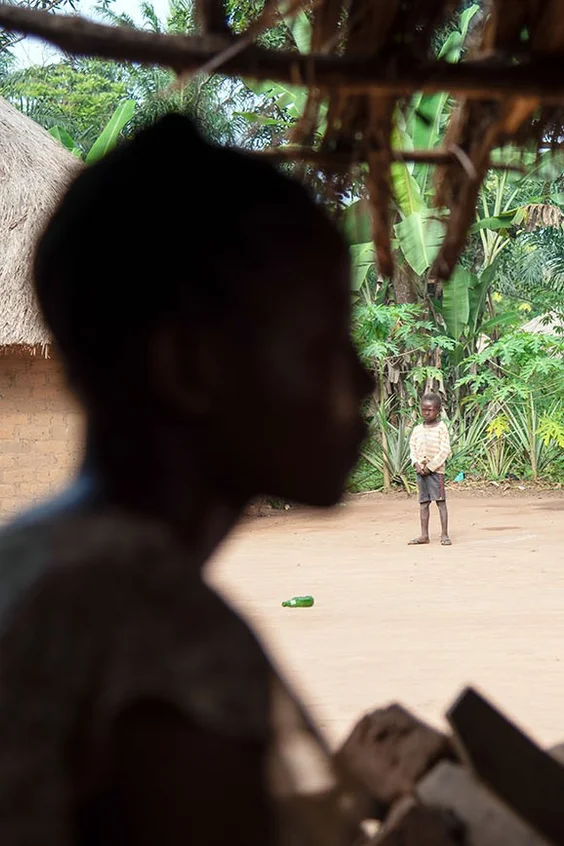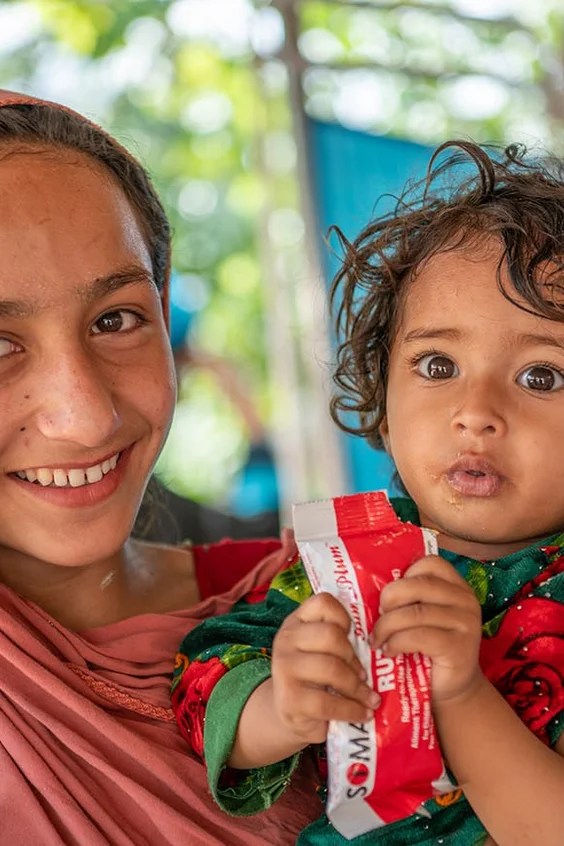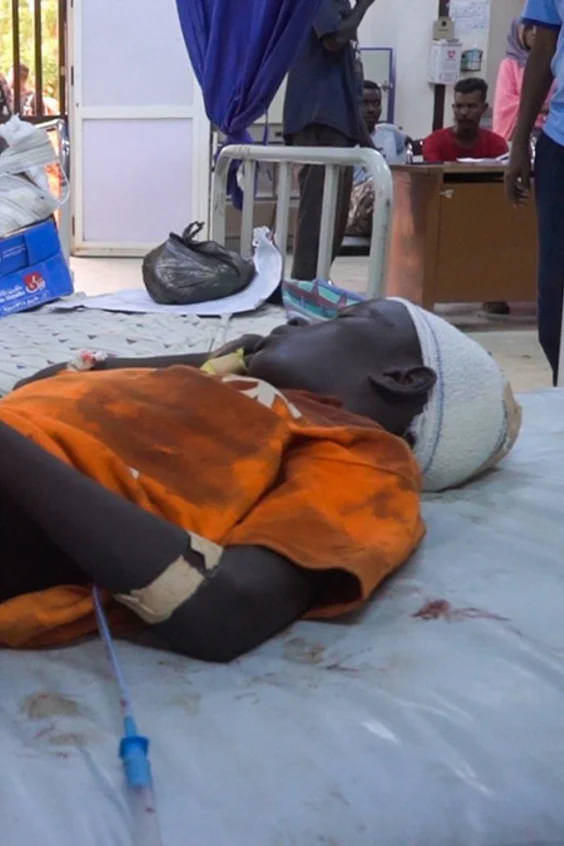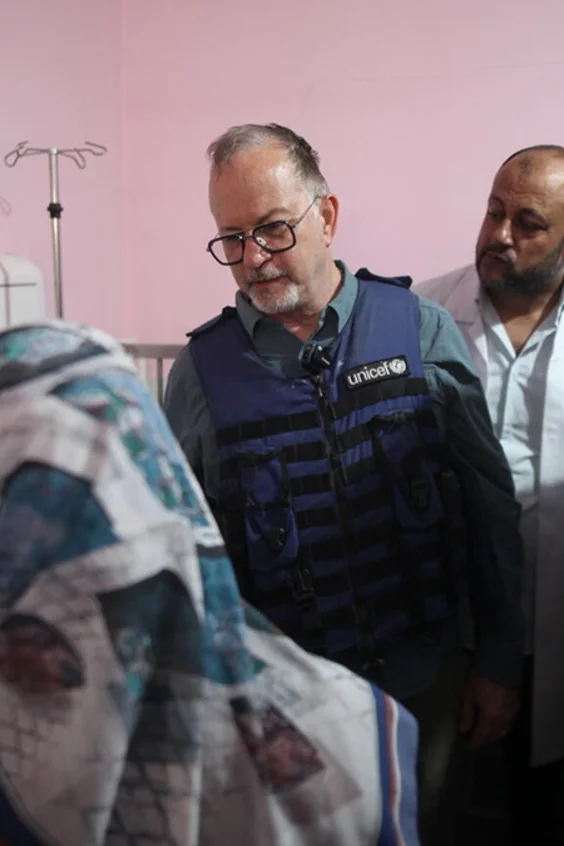More children are now dependent on humanitarian aid than at any point since the Second World War. They and their families are threatened by crises such as war, displacement, disease outbreaks and a rapid rise in cases of malnutrition. Meanwhile, climate change is making these crises worse, and new hot spots are emerging. The following blog describes 11 countries where the available financial resources are insufficient, meaning that more support is needed to meet the basic needs of children and families.
The situation is bad, but by no means hopeless. We know how to reach those children who are most vulnerable and most in need. Whether it’s distributing winter clothing, providing safe accommodation for displaced families, or giving out medicines such as pre-prepared therapeutic food, UNICEF is on the ground. From Bangladesh to Yemen, from Haiti to South Sudan.

The huge floods in South Sudan had devastating consequences for the country’s people. Crops were destroyed, grazing land for cattle and other livestock was flooded, and families were forced to leave their homes. With hunger and malnutrition on the increase in the flooded regions, the population in some communities faces starvation without sustained humanitarian aid.
UNICEF is working to examine and treat children with severe acute malnutrition, one of the biggest threats to child survival. UNICEF is also introducing measures to prepare families for future natural disasters. For example, UNICEF is providing elevated facilities to mitigate the impact of repeated flooding.
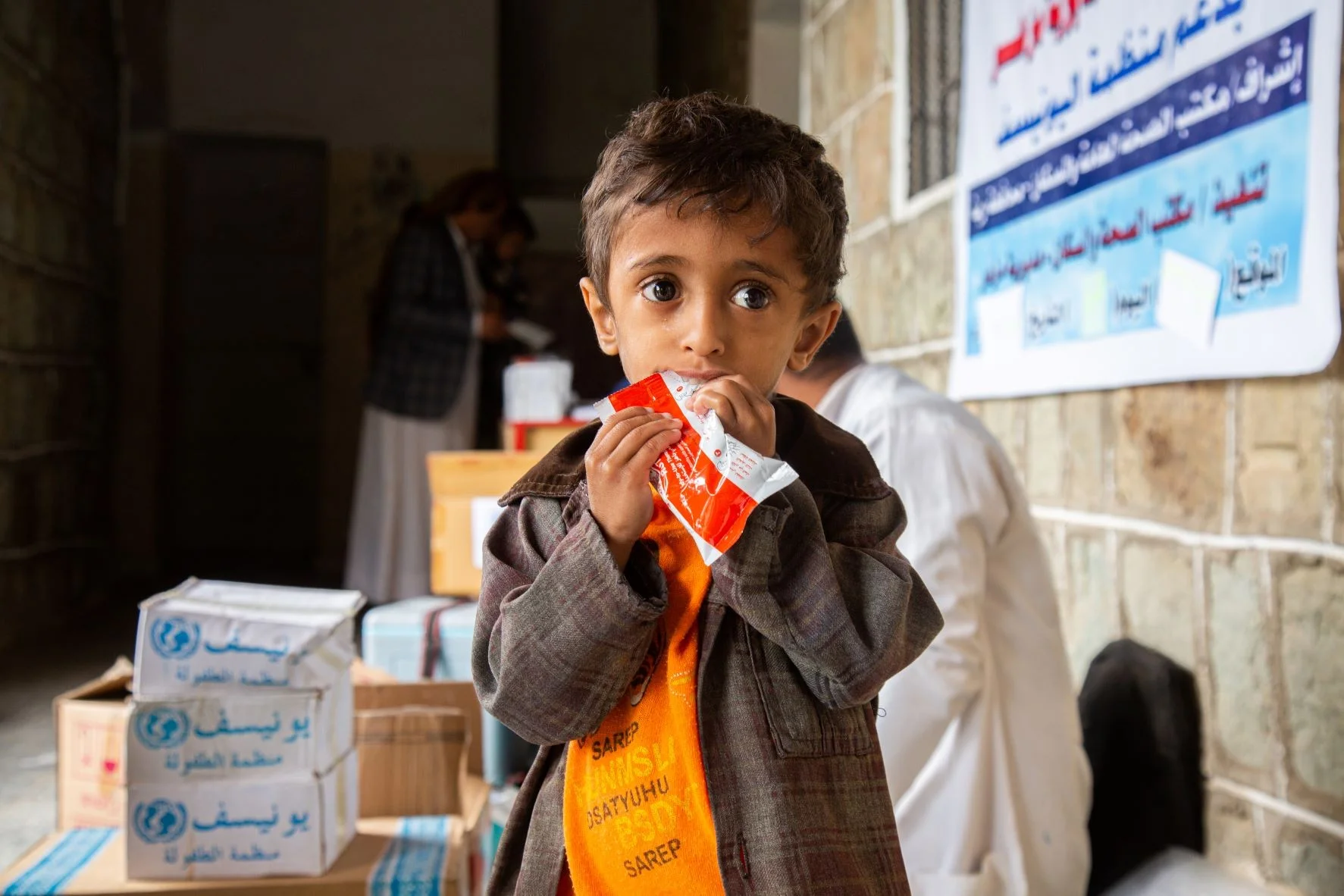
After eight years of conflict, the care systems that Yemen’s families depend on remain on the brink of total collapse. More than 11,000 children have been killed or injured since 2015. The violent conflict, recurring natural disasters and massive displacement have led to more than two million children suffering from acute malnutrition and struggling to survive.
UNICEF is on the ground in Yemen, offering life-saving health and nutrition support through measures such as the early detection and treatment of child malnutrition. This involves giving children the therapeutic food Plumpy’Nut, one of the most effective treatments for malnutrition. The rich peanut paste contains important micronutrients and has already helped treat millions of children all over the world.
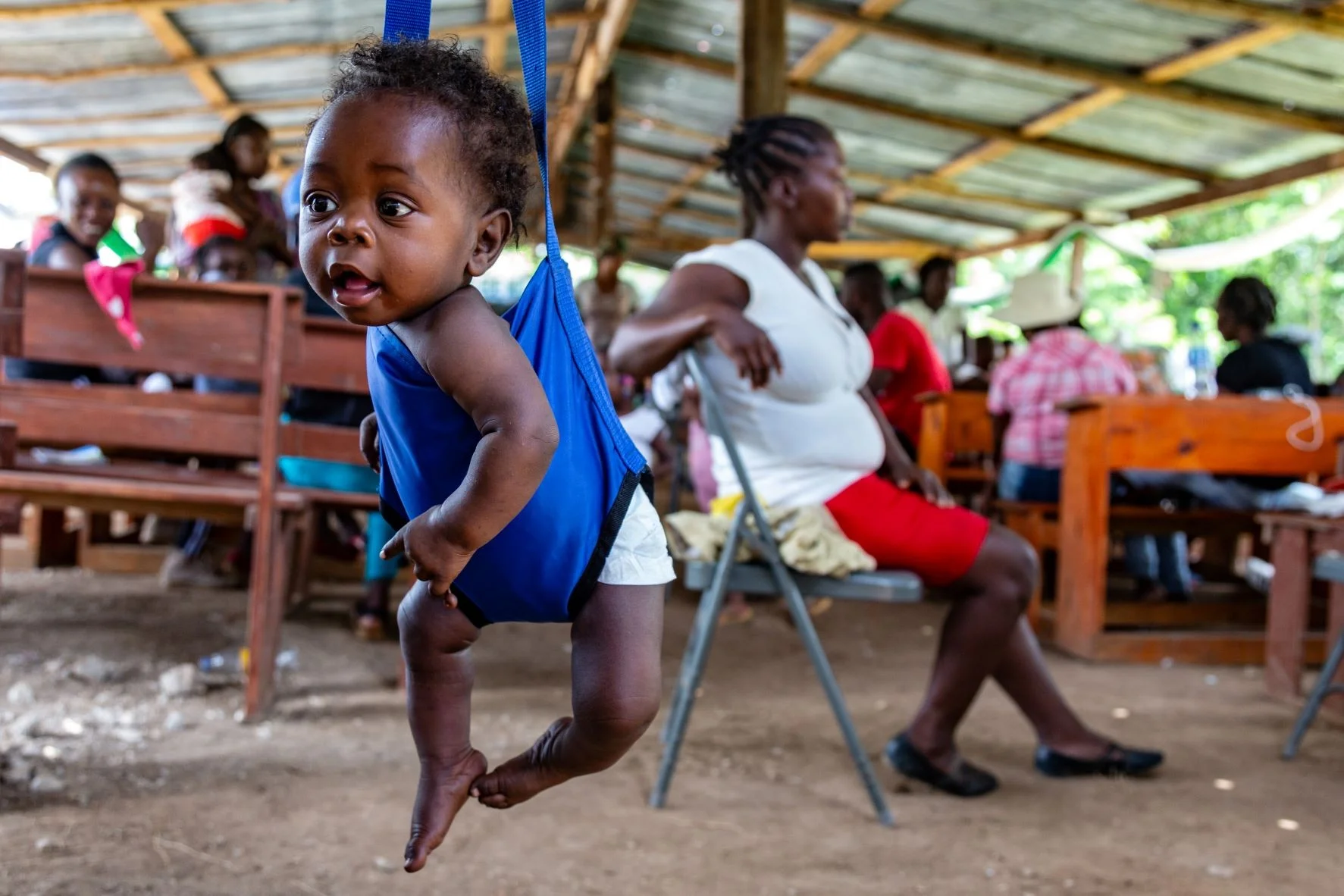
For many years now, a combination of political unrest, civil uprisings and gang fighting, coupled with paralyzing poverty and natural disasters, have presented major challenges for the people of Haiti. There was also an increase in cholera cases in 2022, which posed an additional threat to children’s lives and health.
Despite the extremely volatile situation, UNICEF continues to work with its partners to protect people in Haiti, ensuring that they receive cholera kits, water purification tablets and clean water. To curb malnutrition, UNICEF is also examining children to ensure that those who need help can be treated in mobile clinics and other facilities.

The escalation of the armed conflict and repeated outbreaks of deadly diseases are taking a heavy toll on millions of children in the Democratic Republic of Congo. The country has the second highest number of internally displaced persons in the world. The catastrophic conditions in the camps where the families live pose dangers for their children, who are exposed to an increased risk of violence and disease.
Despite the difficulty of predicting environmental conditions in parts of the country, programs for the most vulnerable families are continuing. This includes the provision of water, the construction of sanitation facilities, hygiene and child protection measures, as well as healthcare and nutrition services.
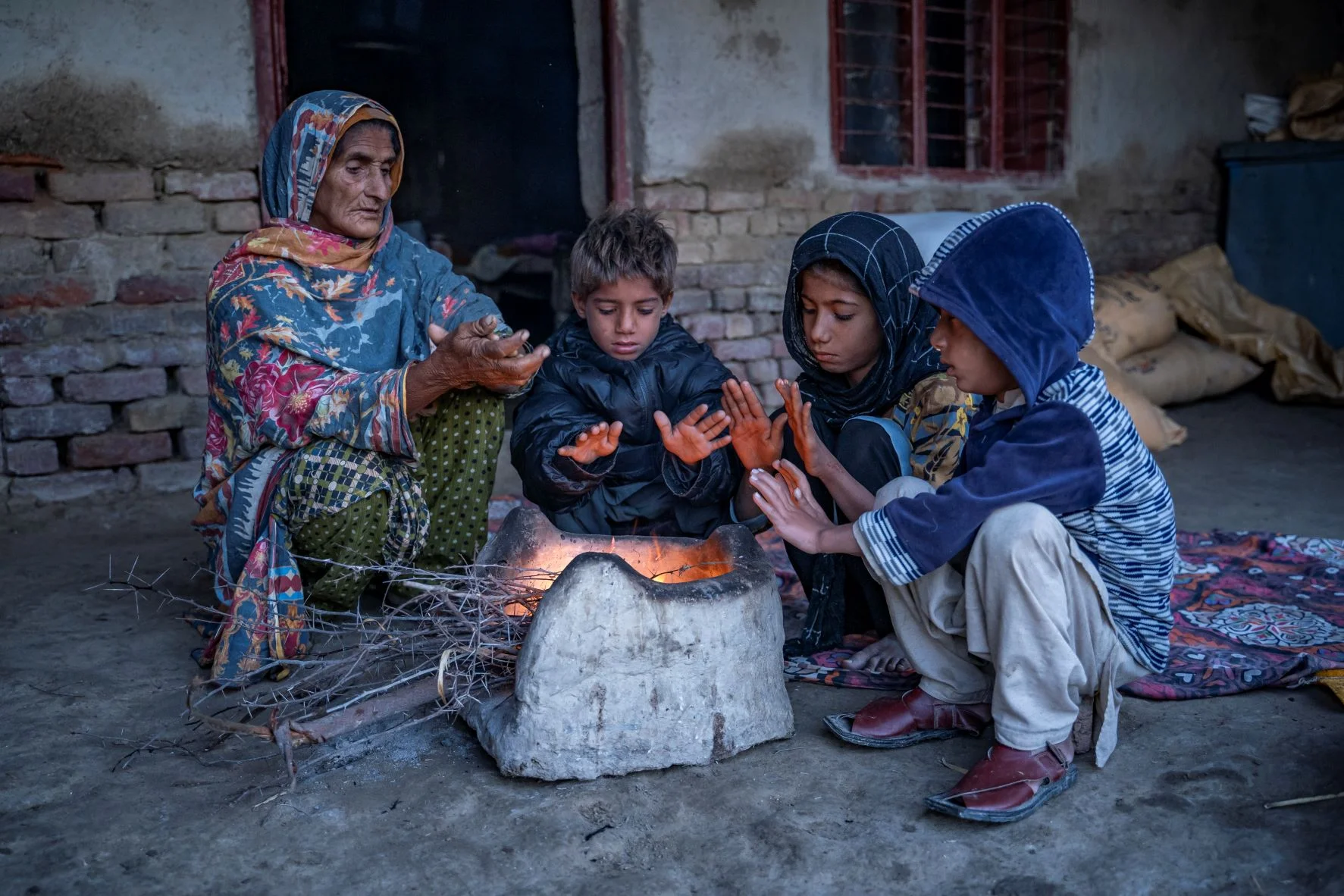
The rains that caused historic floods in large parts of Pakistan in 2022 may be over, but the crisis facing children is not. Even months after the floods, farmland and villages are still under water. Around eight million people are still living in or next to flooded areas. Many of these families live in makeshift tents on the side of the road or near the rubble of their homes, often right next to contaminated and stagnant water.
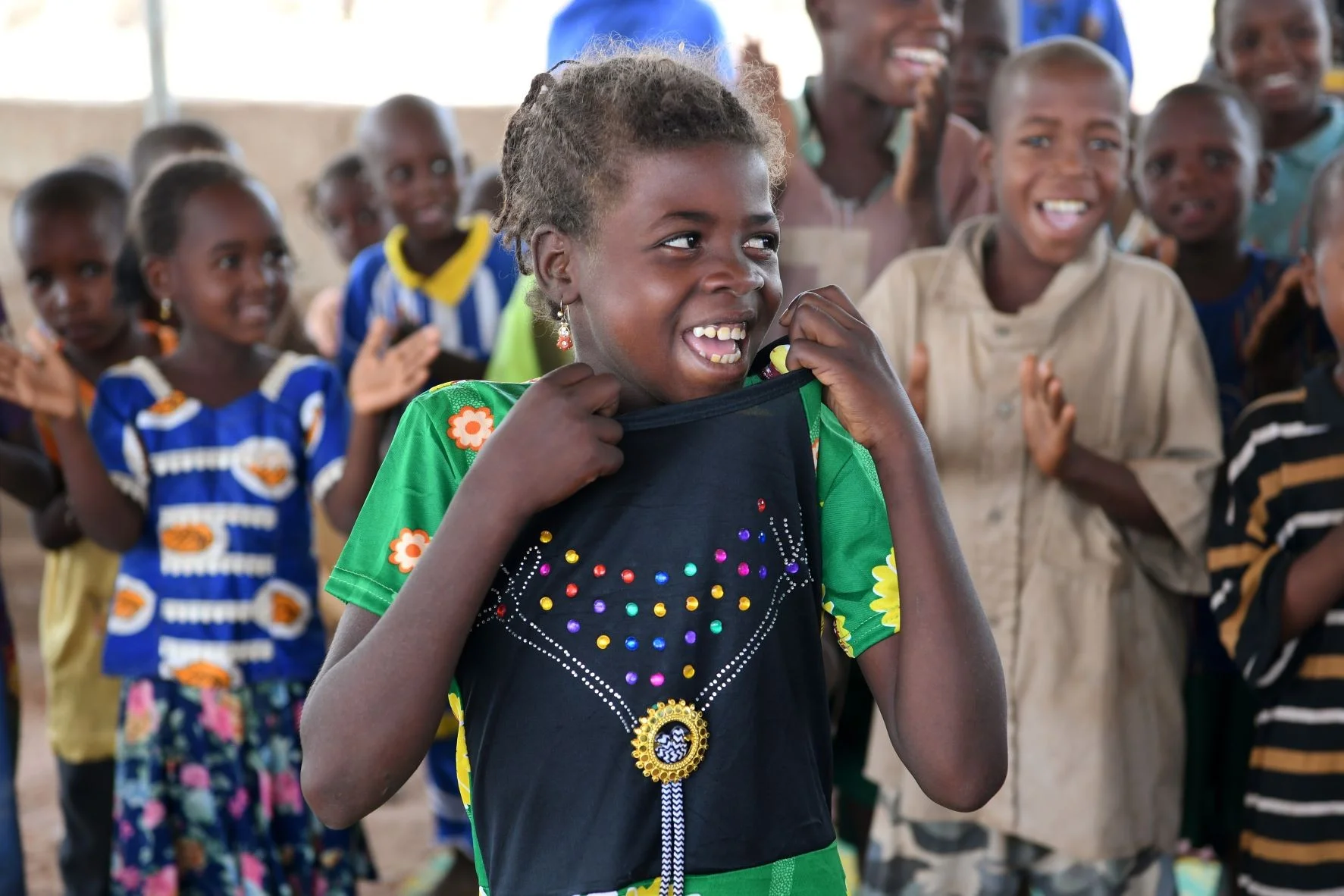
Around 1.7 million people in Burkina Faso are displaced, 60 percent of them children. The main reasons for this are political uncertainty, the effects of climate change, and economic and health crises. The fear, depression and other stress-related problems associated with displacement can affect children’s emotional and physical health throughout their entire lives.
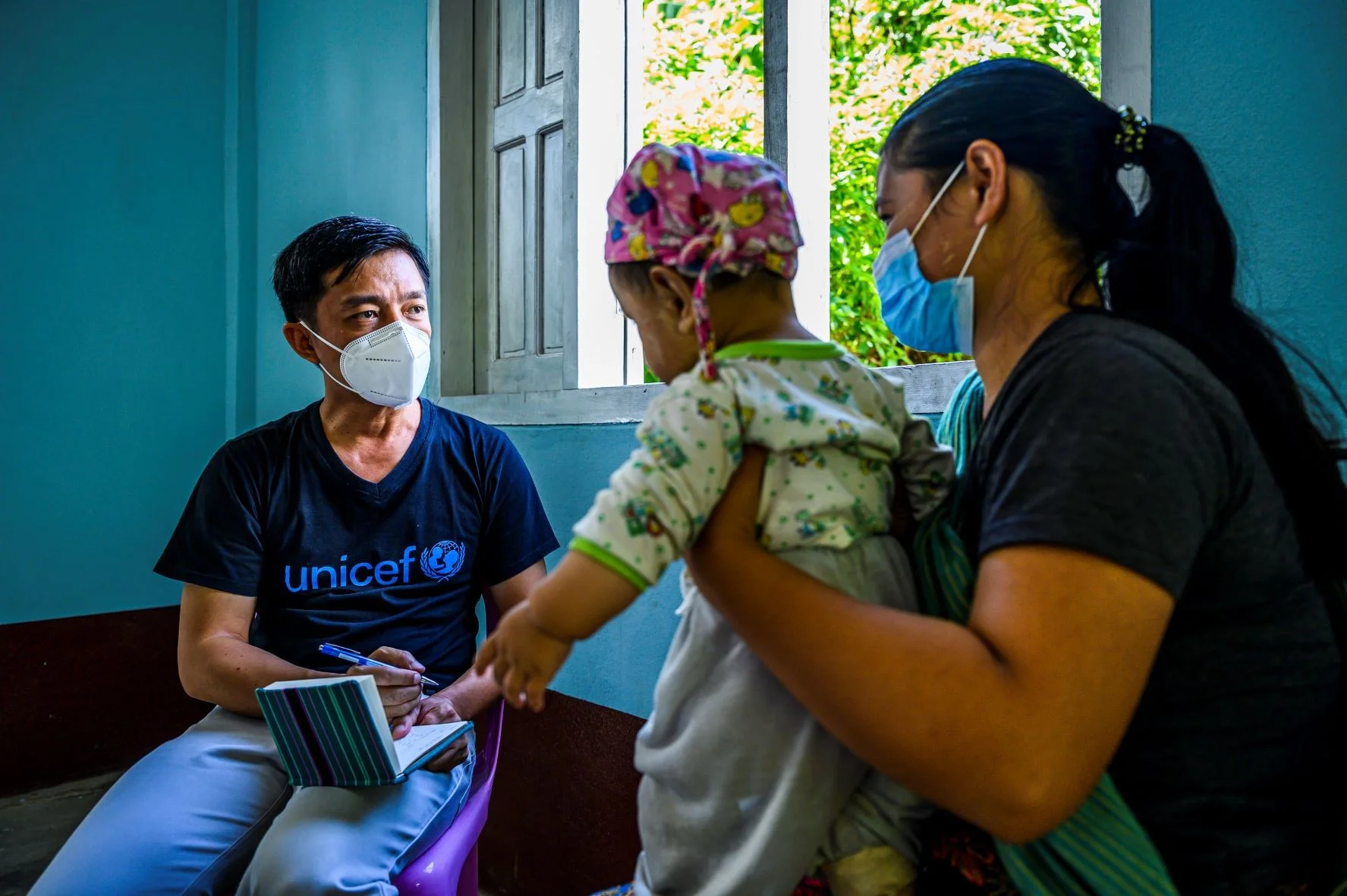
The worsening civil war in Myanmar is having an increasingly severe impact on children and their families. Around 5.6 million children are in need of humanitarian aid. Attacks on schools and hospitals have reached alarming proportions, and there have been reports of serious violations of children’s rights in armed conflicts. The conflict has disrupted the provision of health services for children, including routine vaccinations, and threatens to affect the long-term health and wellbeing of children in Myanmar.
Given the high number of unvaccinated children, UNICEF is committed to ensuring that all children in need are fully vaccinated. UNICEF is also committed to providing children with access to safe learning environments, and is working with partners to educate children throughout Myanmar about the risks of explosives.

In the State of Palestine, children continue to face an ongoing occupation. Around 2.1 million people, more than half of them children, are in need of humanitarian aid.
Since 2009, UNICEF has been supporting family centers throughout the Gaza Strip that provide psychosocial care for children. Children who require specialized care, such as those who are exposed to violence at home, at school or in the workplace, are assigned a designated specialist who works directly with them and their families. These family centers also provide a safe place for play and for group activities, helping to promote the children’s development. They also help educate the children about security threats. This also includes lessons on how to identify remnants of war material.
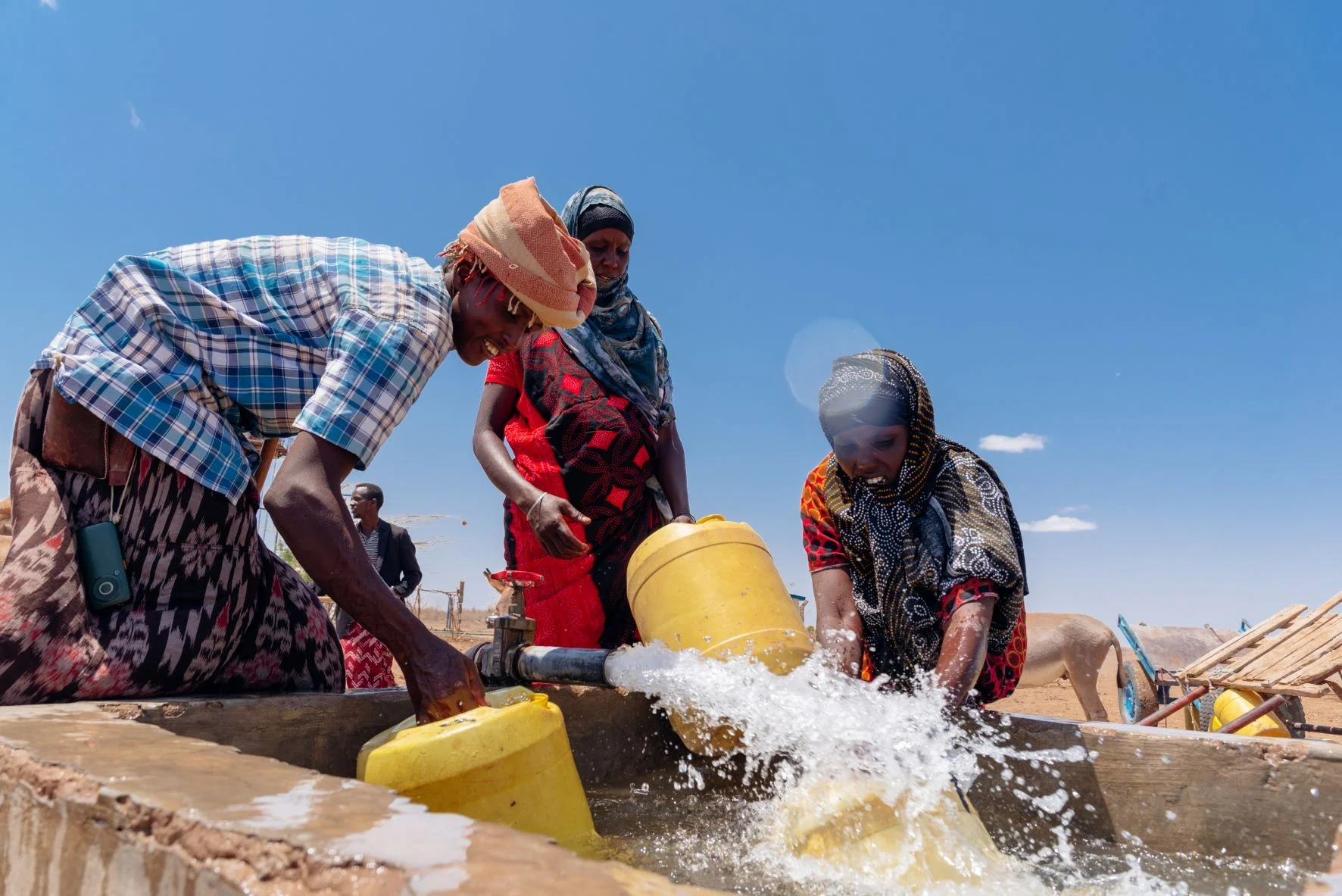
After five failed rainy seasons in succession, Kenya is experiencing its worst drought in 40 years. Without water, plants cannot thrive, and animals and livestock die. The resulting loss of nutritious food and poor sanitation facilities have resulted in hundreds of thousands of children being treated for malnutrition. These children are too thin, and their immune system is so weak that their lives are often at risk.
UNICEF continues to support the Kenyan government in collaboration with other United Nations agencies and national and international organizations. Its work includes carrying out nutrition examinations, distributing Plumpy’Nut peanut paste, and repairing wells in order to improve access to urgently needed water.
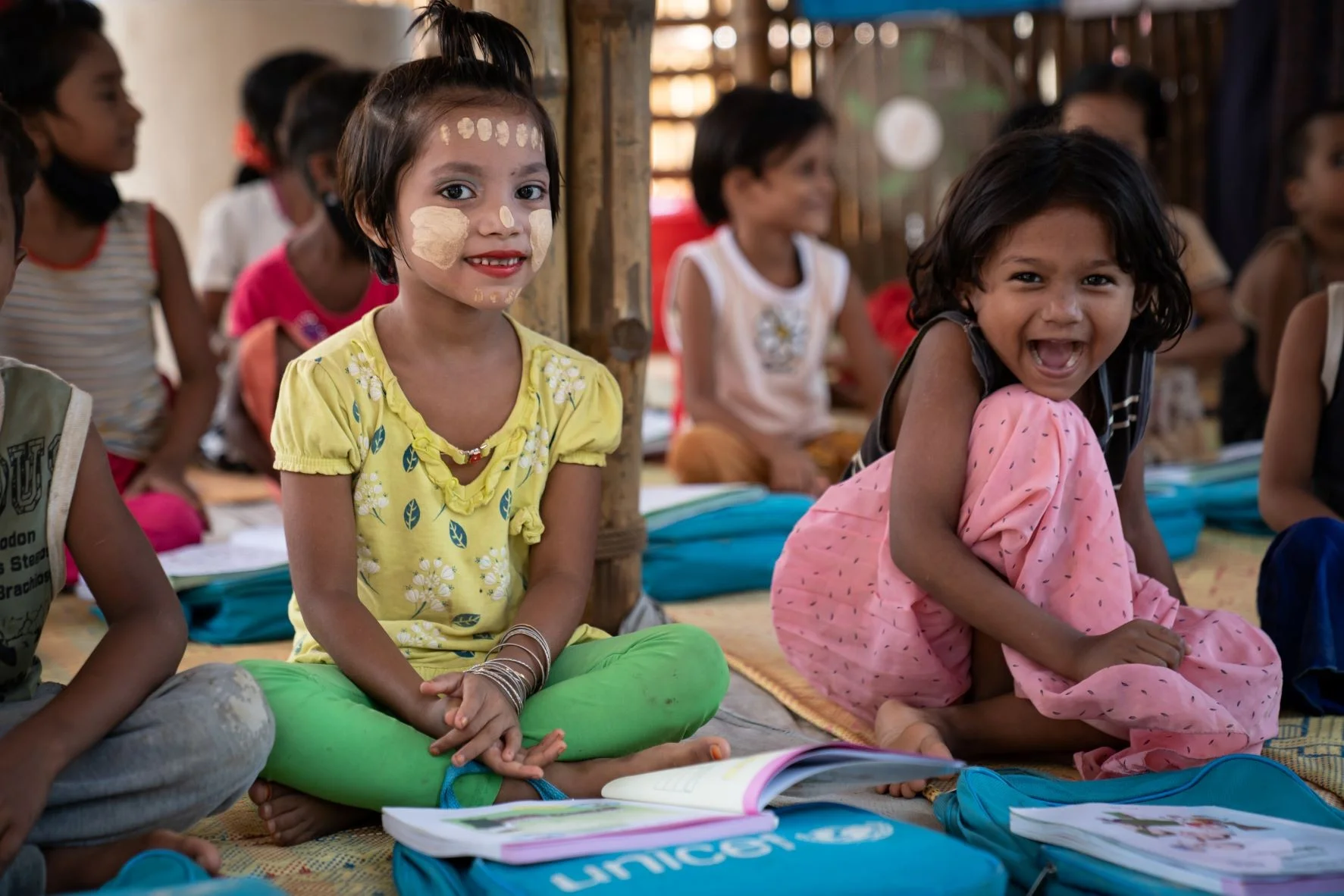
In the fifth year of the Rohingya refugee crisis, there are still hundreds of thousands of Rohingya refugees in Bangladesh. Many of them have fled the extreme violence in Myanmar and found refuge in camps in the Cox’s Bazar district. Although basic services in the camps were assured, children are still exposed to disease outbreaks, malnutrition, a lack of education opportunities, and other risks such as exploitation and violence.
UNICEF continues to support a wide range of services for Rohingya families, including primary healthcare centers and learning centers. UNICEF is also improving access to services for children with disabilities.
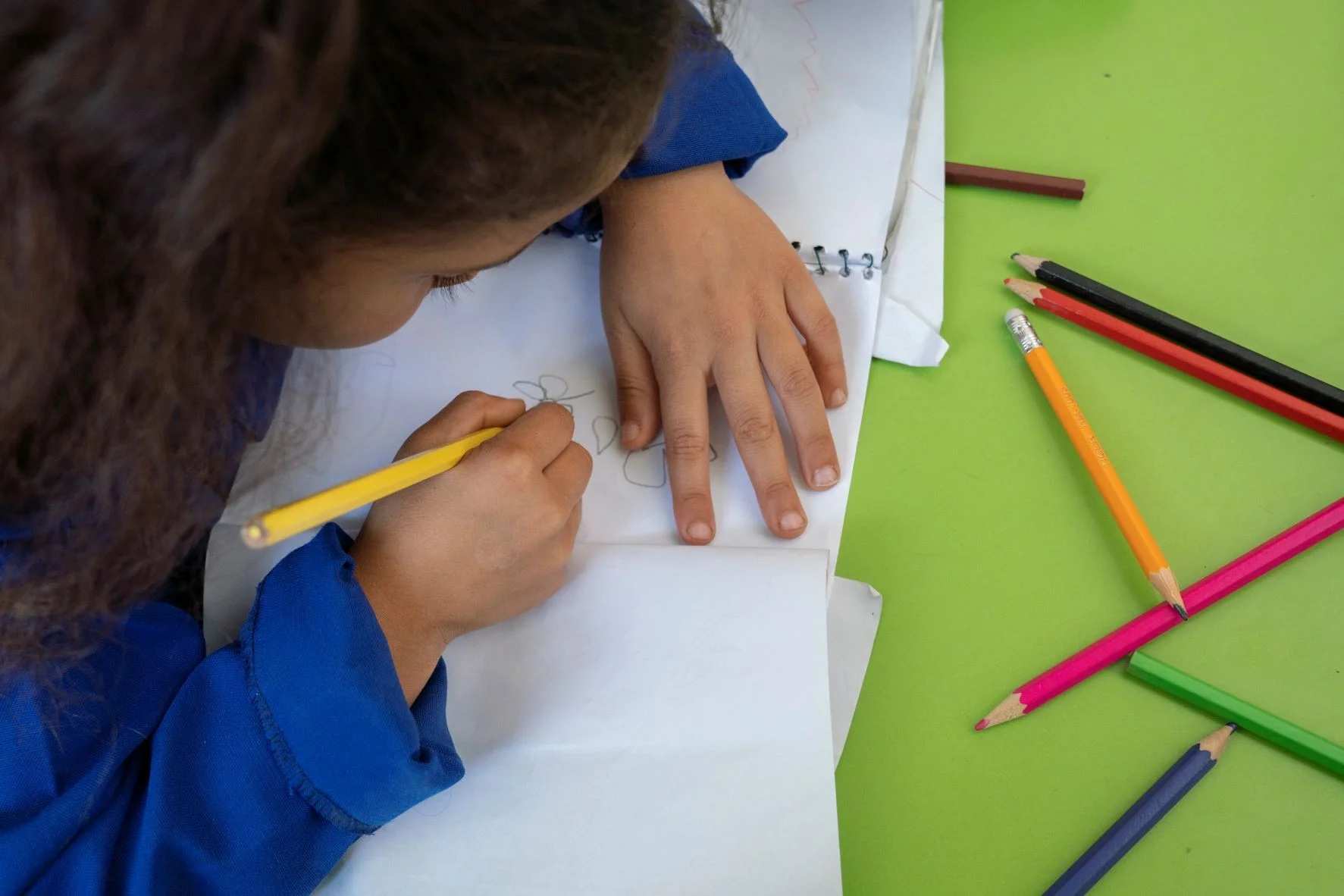
More than a decade of humanitarian crises and war have resulted in Syria’s children growing up in one of the most complex crisis situations in the world. Two thirds of the population are dependent on humanitarian aid due to the worsening economic crisis, ongoing local hostilities, mass displacement and the destruction of public infrastructure. The conflict has created one of the biggest educational crises in recent history: An entire generation of Syrian children is paying a devastating price.
UNICEF is helping children with education, psychosocial support and assistance for young people. As part of winter relief efforts, UNICEF and its partners are providing cash for registered families, fuel to heat schools and study rooms, and insulated windows so that children can continue their learning even in the harsh weather conditions.
